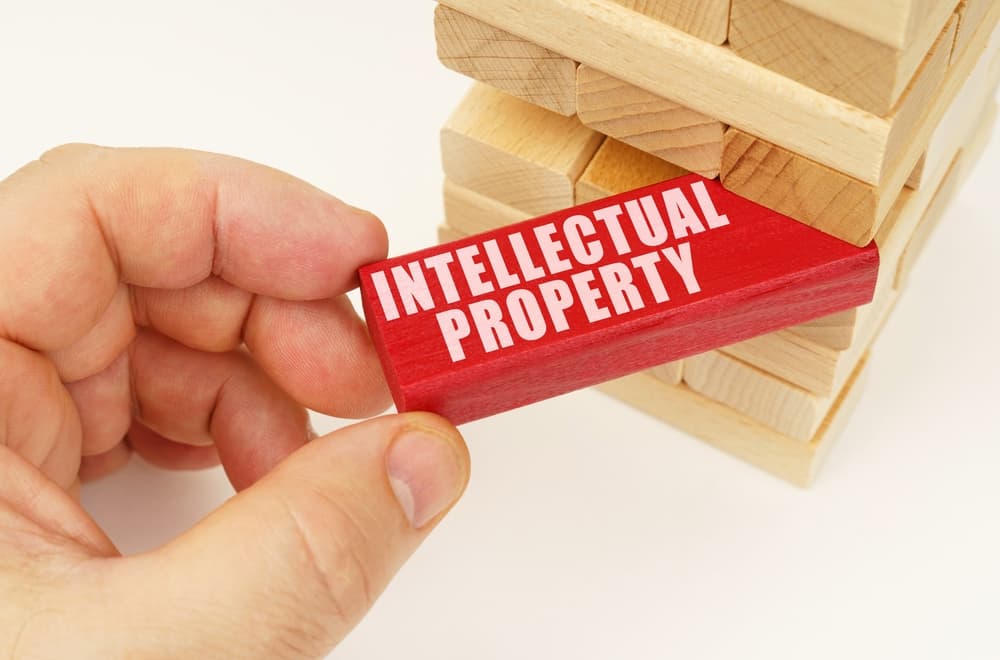Understanding the Importance of Intellectual Property in Business

Intellectual property (IP) is a valuable asset that gives individuals and businesses a competitive edge in today’s fast-paced, innovation-driven world. Protecting intellectual property rights, from trademarks and patents to copyrights and trade secrets, is crucial for success.
Intellectual property can be indispensable to your business because it represents the effort and investment you put into building processes and products. You should do everything possible to protect this intellectual property under the law. If it gets compromised, someone else may reap the benefit of your hard work, which can severely damage your business.
Many business owners underestimate the role of IP in their organizations, causing them to ignore or de-prioritize protections for this property. Suddenly, another party infringes on the IP, and there is not always adequate legal recourse after the fact. It is critical to know the value of a business’s intellectual property upfront and protect it accordingly.
You should contact an intellectual property attorney to protect the IP that is rightfully your company’s. If you suspect someone else misused your intellectual property, you must take immediate and firm legal action against them. These lawyers understand the legal framework surrounding intellectual property and stay up-to-date with the latest developments and changes in the field. They can guide you through the entire process by conducting thorough searches to determine your trademark’s availability, drafting and filing patent applications, and enforcing your rights in case of infringement. Your IP business lawyer can also advise you on actions to both stop wrongful usage and obtain damages for any harm you have suffered.
The Purpose of Intellectual Property
The policy behind the law wants to encourage businesses to invest in innovation. The last thing the law wants is for someone else to get a free ride off your hard work and the money you have spent. There must be an incentive for you to invest and innovate, and that is to profit from your invention. If someone else can rip off and copy what you have done, you have little incentive to invest money in innovation.
Intellectual property also allows you to safeguard your competitive advantage. In some cases, your intellectual property creates a barrier to entry that keeps prospective competitors from challenging you. The investment you make should establish you in your business. While others may spend their money, they will have to develop their work to challenge you instead of taking yours.
Federal laws foster and encourage innovation throughout the economy. The law does not want you to be in a position where you risk a substantial investment only for someone else to reap the benefits. However, the law also wants to strike a balance that does not give you protections that are overboard. Your intellectual property protection will fit your innovation, recognizing that others may be investing money in the marketplace for their own innovation. Thus, the law may not also allow you to patent a process or innovation that entirely prevents others from innovating in a different manner than yours.
Different Types of Intellectual Property

Any business may have several types of intellectual property. Intellectual property can include:
- Patents: A patent protects an invention or process. You are the inventor; nobody else can copy, make, use, or sell your invention without your consent. Patent protection lasts for twenty years. A utility patent is the most common type, and it protects “any new and useful process, machine, manufacture, or composition of matter, or any new and useful improvement thereof.”
- Copyrights: A copyright protects original works of authorship from unauthorized use. These are often creative works, such as writing or a song. A copyright will also protect the author’s work throughout their life plus an additional seventy years. If someone else uses your original work, you can sue them for copyright infringement. Although copyright registration is voluntary, you need to do it to establish a public record and give yourself the ability to enforce your rights.
- Trademarks: A trademark can be a word or symbol associated with your brand. For example, the distinctive logo on a Coca-Cola bottle is trademarked because people identify it with the brand. A trademark prevents brand confusion and makes your own identity distinct.
In addition, your trade secrets may be intellectual property and may include a company’s processes, customer data, strategic plans, and industrial processes that do not qualify for patent protection. Although you cannot formally apply for them to get protection, you can file a lawsuit under the Trade Secrets Act or state common law when someone steals your trade secrets.
You must go through a formal process when applying for intellectual property protection. A government examiner will work on your case and review your application before deciding whether to grant it. If they reject your application, you have the legal right to due process and can file an appeal.
Protecting Intellectual Property Helps You Avoid Legal Disputes
When the law clearly establishes your rights, it should send a message to others. You should state your patent or trademark explicitly, and it should place others on notice of your ownership interest. Others must perform a patent search to know whether someone else has a protected idea. Registering your intellectual property puts your ownership interests and rights on the public record. Theoretically, this action should stop someone else from infringing on your rights. Accordingly, obtaining protection can help you avoid costly and bitter litigation.
Intellectual Property Strengthens Your Balance Sheet
Intellectual property is a large part of your business’s valuation. You may have physical assets, such as property and equipment. Your business’ value also includes patents and trademarks, and your brand value connects to your intellectual property. Market positioning and how consumers view your products are critical elements in how your company is valued.
Obtaining protection for your intellectual property can also help your company secure further capital. Banks and other investors will review your balance sheet, including your physical assets, to see if you are a creditworthy borrower. Some of your assets may have little value (or not nearly as much as you think) if you do not project them. The fact that nobody else can use your intellectual property for their benefit enhances your balance sheet.
Intellectual Property Allows You to Monetize Your Work
When you own intellectual property rights, you can do with it as you please. You may use it to make money for your business by selling products and services or licensing your intellectual property to others in exchange for fees and royalties. Regardless, you can continue to sell your product or use your process to profit from it as a return on your investment.
Applying for Intellectual Property Protection

Before getting approval and protection for your intellectual property, you must go through a thorough legal process. For example, if you are filing for patent protection, you must apply to the United States Patent and Trademark Office (USPTO). Before you apply, you must conduct a thorough patent search to verify whether someone else already has a patent on your work.
Usually, you will do this before you invest in the invention because you want to avoid being in a position where you cannot patent your work or have someone accuse you of patent infringement.
Your application describes your invention and includes relevant diagrams and information about what you have done and why it is novel. The USPTO will assign a patent examiner to your case to review your application. They may come back to you with additional questions since the patent application is a deliberative process. The USPTO examiner decides to grant or deny your patent application; if they reject it, you will have the right to file an appeal. Preferably, having an intellectual property lawyer assist with your patent application and any possible appeal is helpful.
You Must Proactively Monitor Your Intellectual Property Rights
Registering a patent or trademark is the beginning of your intellectual property rights. First, you should audit your intellectual property to determine what you need to register and protect, and you should have policies and procedures in place throughout this process. Then, you should also have policies and procedures to monitor any potential wrongful use of your intellectual property so you know when you need to enforce your rights. You should not treat intellectual property haphazardly because it can cost your business money and jeopardize your operations.
What Happens When Someone Violates My Intellectual Property Rights?
The fact that you have intellectual property rights allows you to take action to protect yourself when someone else violates you. A patent, copyright, or trademark gives you a legal right of ownership, and you can take action to enforce your rights.
It is best always to take firm legal action to stop any violation of your intellectual property rights, and it is up to you to do something. The longer you allow a violation to continue, the more damage it can cause to your business. There may be confusion about your brand value, or someone else can profit from your hard work.
You will often seek an immediate injunction to stop the illegal action. A judge can grant a temporary injunction to prevent the unlawful use of your intellectual property while your case is pending. If you successfully get an injunction, it is an ultimate predictor of success in your case because the judge will consider the merits of your case at the outset. After your case, you may obtain a permanent injunction against the illegal use of your intellectual property.
You will also seek monetary damages for the violation of your intellectual property rights. Your damages should include the losses you suffered, including the lost profits you could have made. You can also recover money for the damage that happened to your business. You can sometimes receive punitive damages when the other party has willfully violated your rights. If the defendant acted willfully, the law can require them to pay treble damages for what they have done.
An IP lawyer has experience in handling disputes and litigation. If someone challenges your intellectual property rights, these lawyers have the knowledge and skills to represent you effectively. They can negotiate on your behalf, initiate legal proceedings, and help you recover damages or obtain injunctions to stop further infringement.
Why You Need an Intellectual Property Lawyer to Help You
An intellectual property attorney can help you at every phase of the legal process. First, they can prepare your application when you are seeking formal intellectual property rights. The government examiners do not automatically approve every application for a patent or trademark. You need to show how your invention or process is novel. Along the way, there is a deliberative process if the examiner has questions about your application. You may need to file an appeal if they deny your application. These cases can be highly technical, requiring an intellectual property attorney with a command of the facts and a knowledge of the underlying technology.
Then, your intellectual property attorney can litigate when someone else has taken your rights. First, they can send a cease-and-desist letter to the violating party, informing them they are breaking the law and taking what is yours. Your intellectual property attorney can negotiate and consult with the other party’s attorney to reach a solution in your case. You may come to an agreement where the other party agrees to stop using your intellectual property or even pays you damages to avoid a contentious lawsuit. They may enter into a licensing agreement where the other party gets to use your intellectual property in exchange for licensing fees.
You should refrain from attempting to handle intellectual property matters on your own. There are high stakes and a complex legal process. An intellectual property attorney can advocate for you at every step of the way, and they can establish and advise you on your legal rights. Be sure to promptly hire an intellectual property lawyer to help with your issue. If you delay hiring an attorney, it can put your right to profit from your invention at risk and even subject you to legal jeopardy of your own.



